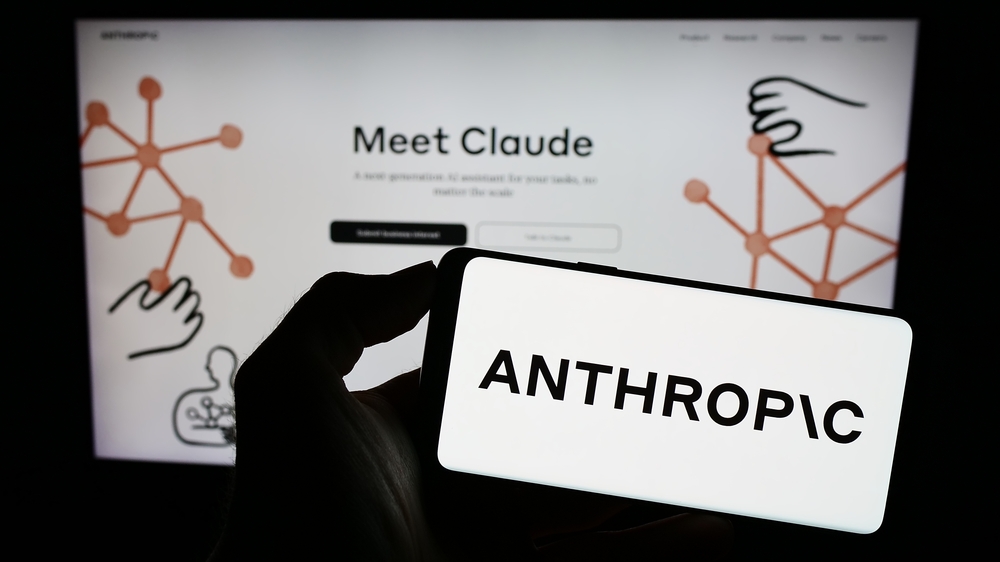Claude AI developers Anthropic have ruled out replicating the data hunger demonstrated by rival AI companies in training their chatbots.
The generative AI startup firm indicated it would not utilize the clients’ data to train the large language model (LLM). The firm reiterated that it will defend the users battling copyright claims.
Anthropic traces its origin to former OpenAI researchers confirming the commercial terms of service to refine its ideals and intentions. It commits to carving out the private data from the clients in a manner that solidly differentiates it from rivals, including Meta, Amazon, and OpenAI, that tap the user content to enhance the systems.
Anthropic revealed in its recent announcement that it will not train the models on client content paid services.
Anthropic Update Terms to Safeguard User Data
The updated terms indicate it considers data owned by clients as warranting private data protection provided for by the applicable law. Anthropic considers the client to own all output data and disclaims rights involving the customer content under such terms.
The revised terms indicated that Anthropic will not anticipate exercising rights in the customer content. It rules out granting and implying to give other parties content and intellectual property rights.
The updated terms document stipulates protections and transparency extended to commercial clients. It emphasizes that companies own the outputs generated to avert potential IP-related disputes.
Anthropic devoted to safeguarding the clients from copyright claims involving infringing content generated by Claude. The policy is aligned with the firm’s mission strategy of delivering beneficial, harmless, and honest AI.
Anthropic commits to addressing issues involving data privacy amid the growing skepticism over generative AI ethics. Doing so will yield a competitive edge for Anthropic.
Concerns Over Users’ Data in Large Language Models (LLMs)
The large language models (LLMs) such as LlaMa, GPT-4, and Claude involve advanced AI systems with demonstrative understanding. They generate human language from their training on extensive text data.
The models leverage deep learning techniques blended with neural networks to predict word sequences and understand context and language subtleties.
LLM training features continuous refining of predictions to enhance conversational capability and text composition and offers relevant information. LLMs’ effectiveness relies upon the diversity and volume of the data used in training them.
Data diversity and volume influence their contextual awareness and accuracy, particularly in understanding varying language patterns, styles, and emergent information. It explains why the users’ data is invaluable in training the LLMs.
The access to users’ data allows the models to retain relevancy and be up-to-date with linguistic trends and preferences. Also, it facilitates customization and improved user engagement relative to user interactions and styles.
Ethical Debate on AI Training on Users Data
The continued reliance on user content yields an ethical debate regarding the failure to compensate clients for the vital information they use in training models that earn them million-dollar fortunes.
In a recent announcement, Meta confirmed tapping users’ data to train the upcoming LlaMa-3 LLM model. It revealed the use of available data harvested from uploads on social media to train the new EMU models involved in generating photos and videos using text prompts.
Amazon indicated the upcoming LLM aimed to power upgraded Alexa and tap the users’ conversations and interactions. Nonetheless, users can exclude their data from the training data, given that the default agrees to share such information.
Amazon indicated that training Alexa to use real-world requests is critical to delivering exceptional experiences to users. Such involves accuracy, personalized and enhanced output to users.
The Amazon executive indicated that users exercise control over the Alexa voice recordings. One can opt for the use of voice recordings to enhance the services. Amazon affirmed its readiness to honor customer preferences when training the models.
Anthropic seeks to lead in the race towards responsible data practices considered key to earning public trust. The race features the ethical debate pitting delivery of convenience and powerful models where users surrender personal information.
The debate prevalence reignites the issues raised concerning the social media popularized concept where users are the product exchanged for free services.
Editorial credit: T. Schneider / Shutterstock.com
